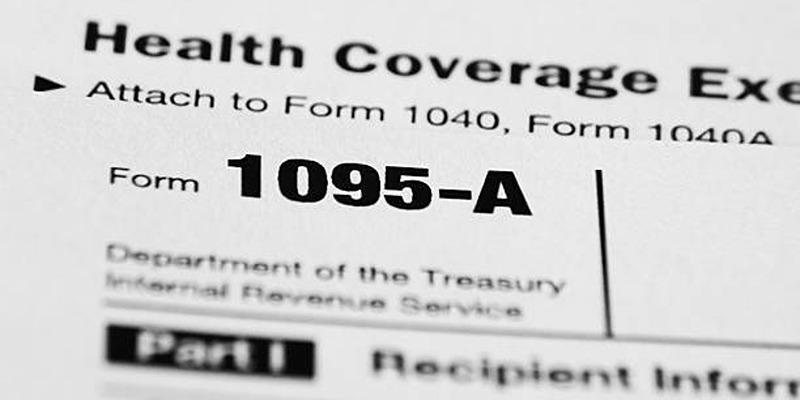Renters insurance is a type of coverage designed to protect tenants in rented properties. It provides financial protection against unexpected events like theft, fire, or damage to personal belongings. Let's delve into how renters insurance works and why it's crucial for tenants.
Understanding Coverage Options
Renters insurance typically offers two primary types of coverage: personal property coverage and liability coverage.
Personal Property Coverage: This aspect of renters insurance helps cover the cost of replacing or repairing your belongings if they are damaged, destroyed, or stolen due to covered perils. From furniture and electronics to clothing and jewelry, personal property coverage safeguards your possessions against unforeseen events.
Liability Coverage: Liability coverage protects you financially if someone is injured while on your rented property or if you accidentally damage someone else's property. It can help cover legal expenses and medical bills, offering peace of mind to tenants in case of unforeseen accidents.
Understanding Deductibles
Like other insurance policies, renters insurance often comes with deductibles. A deductible represents the portion you're responsible for paying upfront before your insurance starts covering costs. Generally, opting for a higher deductible leads to lower insurance premiums. Nonetheless, it's crucial to strike a balance between a deductible you can handle and keeping premiums affordable.
Factors Affecting Premiums
When it comes to renters insurance premiums, several factors come into play, influencing the cost of coverage:

Location:
The area where you live plays a significant role in determining your renter's insurance rates. If you reside in an area prone to natural disasters like hurricanes, earthquakes, or floods or live in a neighborhood with high crime rates, you may face higher premiums. Insurance firms evaluate the risk linked to your area and modify premiums accordingly.
For example, living in a coastal region prone to hurricanes may result in higher premiums due to the increased likelihood of property damage from severe weather events.
Coverage Limits:
The level of coverage you choose directly impacts your renter's insurance premiums. The more extensive your coverage limits for personal property and liability, the higher your premiums will likely be. You can expect to pay higher monthly premiums if you opt for higher coverage limits to ensure comprehensive protection for your belongings and liability. Conversely, selecting lower coverage limits may reduce your premiums but could leave you underinsured in the event of a significant loss or liability claim.
Deductible Amount:
Your choice of deductible can also affect your renter's insurance premiums.
A deductible refers to the sum you're responsible for paying upfront before your insurance starts covering expenses. Typically, choosing a higher deductible results in reduced premiums because you're willing to cover a greater portion of the initial costs in case of a claim.
On the other hand, selecting a lower deductible means you'll have higher premiums but less out-of-pocket expense if you need to file a claim. It's essential to strike a balance between an affordable deductible and premiums that fit within your budget.
Security Measures:
Insurance companies often offer discounts to renters who take proactive steps to enhance the security of their rented properties. Installing security features such as smoke detectors, burglar alarms, or deadbolts can reduce the risk of theft, vandalism, and other perils, making your rental property safer and qualifying you for lower premiums. Investing in security protects your belongings, and you may enjoy savings on your renter's insurance premiums over time.
Why Renters Insurance Matters?
Renters insurance offers several benefits to tenants, making it a valuable investment for anyone renting a property:

Protection of Personal Belongings:
One of the primary reasons renters insurance matters is its ability to safeguard your personal belongings. Imagine returning home to find your apartment burglarized or your belongings damaged due to a fire. Without renters insurance, replacing or repairing your possessions could be financially devastating.
However, with renters insurance, you can rest assured that your belongings are covered against theft, fire, vandalism, and other covered perils. Whether it's your furniture, electronics, clothing, or other valuables, renters insurance helps alleviate the burden of replacing or repairing damaged items, saving you from significant financial losses.
Liability Coverage:
Another essential aspect of renters insurance is liability coverage. Accidents can happen anywhere, including your rented property. If a guest slips and falls in your apartment or if you accidentally damage someone else's property, you could be held liable for their injuries or damages. Without liability coverage, you may face expensive legal fees and medical bills.
However, renters insurance provides financial protection, covering legal expenses and medical costs associated with liability claims. This coverage protects your finances and offers peace of mind, knowing you're financially protected against unforeseen accidents and incidents.
Peace of Mind:
Renting a property comes with its own set of risks and uncertainties. From unexpected emergencies like fires or floods to liability claims from guests or neighbors, there's always a chance that something could go wrong. Renters insurance provides peace of mind by offering financial protection against these potential risks.
Knowing that you're covered in theft, damage, or liability claims allows you to enjoy your rented space without worrying about the what-ifs. Whether you're renting a studio apartment or a spacious house, renters insurance gives you the confidence to live your life without fear of financial setbacks due to unforeseen events.
Affordability:
Compared to other types of insurance policies like homeowners insurance, renters insurance is often more affordable. With relatively low monthly premiums, renters insurance offers valuable coverage for tenants without breaking the bank. You can secure financial protection for your personal belongings and liability for a fraction of your monthly rent, providing peace of mind and security without straining your budget.
Additionally, some insurance providers offer discounts for renters who take certain safety precautions, such as installing smoke detectors or security systems, making renters insurance even more affordable for proactive tenants.
Conclusion
Renters insurance provides financial protection for tenants in rented properties, covering personal belongings and liability in case of unforeseen events. Understanding the coverage options, deductibles, and factors affecting premiums can help tenants make informed decisions when selecting renters insurance policies. Ultimately, renters insurance offers peace of mind and financial security, making it a valuable investment for tenants everywhere.

Debit Cards for Kids: A Financial Rite of Passage?

Why Your Home Is Stuck on the Market: Key Issues to Address

Unveiling the Essentials of Comprehensive Car Insurance

What Is a Co-Borrower? A Comprehensive Guide to Co-Borrowing

How YouTube Makes Money Off Videos

Explaining the Mechanics: Insights into Working and Premium Determinants

Understanding Form 1095-A: A Comprehensive Guide

All You Should Know About PayPal Pay in 4

Summer Camp Rules And Regulations

What is the Cash Price? Insights into Financial Terminology

Navigating the World of Membership Organizations and Their Impact on Health Insurance
